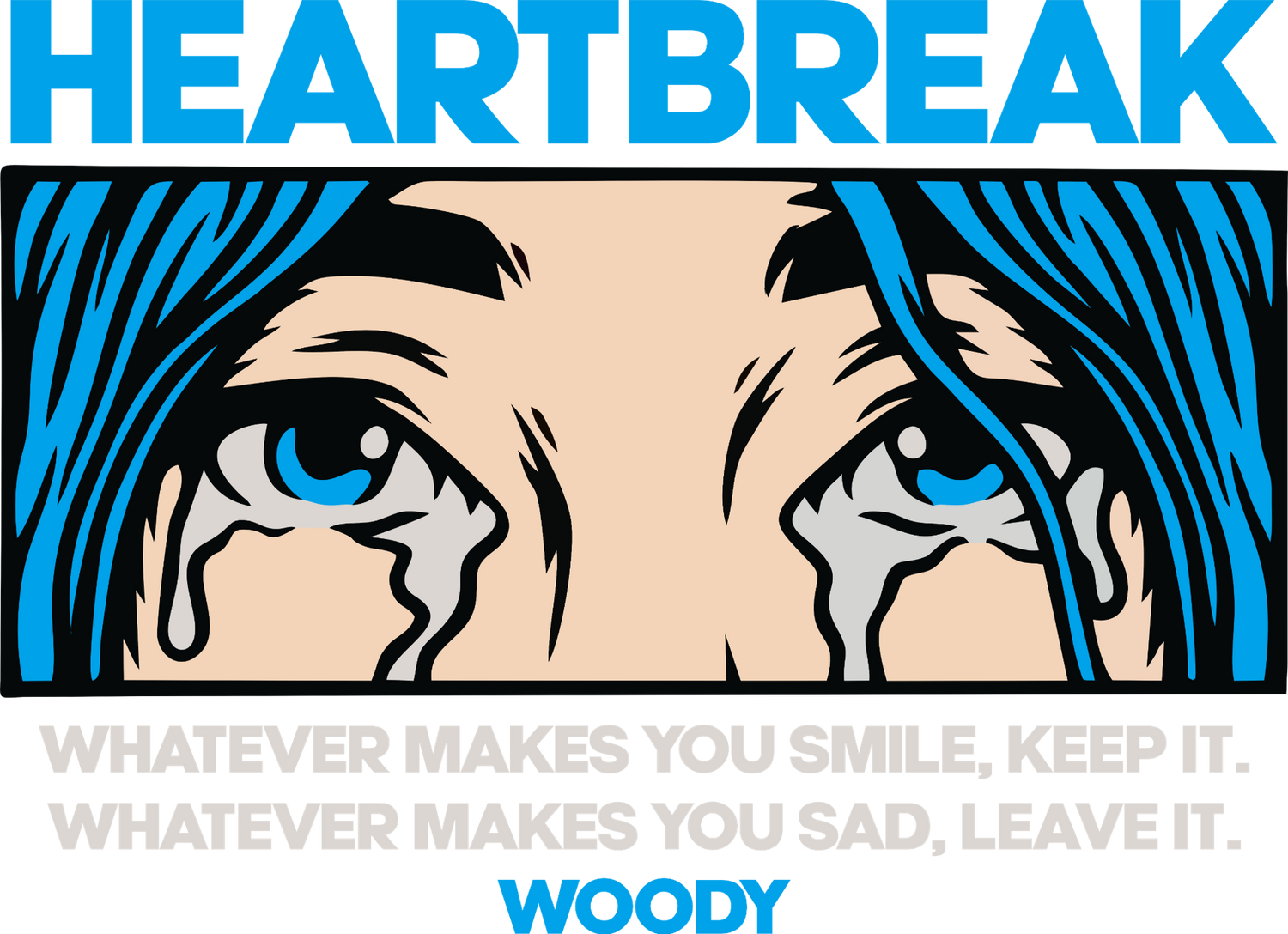
The Power of Talking: Why Opening Up Can Save Lives – A Personal Perspective on Mental Health and Healing
Share
Opening up about personal struggles can be daunting, especially for those of us who have been conditioned to suppress our emotions. As a veteran, I understand the weight of this challenge. For years, I grappled with the notion that vulnerability equated to weakness, making it difficult to share my feelings. Even now, I sometimes find it hard to open up. However, I've come to realize that the benefits of speaking out far outweigh the discomfort.
The Importance of Talking
Engaging in open conversations about our mental health can be life-saving. It fosters connection, reduces feelings of isolation, and allows us to receive support. For military personnel, this is particularly crucial. The unique stresses of service can lead to mental health challenges that, if left unaddressed, may escalate into crises.
Statistics Highlighting the Need
Military Personnel: Mental health disorders have been a leading cause of hospitalization among active-duty U.S. military members. In 2023, mental health disorders were the top reason for hospitalization, continuing a trend observed since 2009. This trend highlights the immense psychological toll of military service, including prolonged deployments, exposure to combat, and the stress of transitioning back to civilian life. (Military.com)
Looking ahead, the challenges faced by military personnel are expected to grow. With the increasing complexity of modern warfare, including the use of advanced technologies and evolving geopolitical tensions, service members may face even greater mental health demands. Additionally, as stigma surrounding mental health within the military slowly diminishes, it's anticipated that more personnel will come forward seeking help, placing additional strain on existing mental health resources. The Department of Defense and Veterans Affairs are working to expand programs like telehealth counseling and crisis hotlines to meet this growing need, but significant gaps in care remain. (Military.com)
Veterans: Approximately 38% of veterans have been diagnosed with common mental health disorders such as post-traumatic stress (PTSD), traumatic brain injury (TBI), depression, anxiety, and substance abuse. These conditions often stem from the unique challenges veterans face, including exposure to combat, separation from family during service, and the difficulties of reintegrating into civilian life. (Mission Roll Call)
The numbers are staggering:
-
PTSD: An estimated 11-20% of veterans who served in Operations Iraqi Freedom (OIF) and Enduring Freedom (OEF) experience PTSD in a given year. For those who served in the Gulf War, the number is around 12%. Vietnam veterans face even higher rates, with approximately 30% experiencing PTSD at some point in their lives. (VA.gov)
-
Suicide: Veterans are 1.5 times more likely to die by suicide than the general population. In Arizona alone, veterans account for roughly 20% of all suicide deaths annually. (AFSP.org)
- Substance Abuse: Around 1 in 10 veterans have a substance use disorder, often linked to self-medication for PTSD or chronic pain. (VA.gov)
But the reality is that these struggles can’t be faced alone. Veterans are carrying invisible wounds that can be just as debilitating as physical injuries. Without proper mental health care and support, these wounds can fester, leading to unemployment, homelessness, substance abuse, and tragically, even suicide.
The numbers paint a clear and urgent picture:
- On average, 17 veterans die by suicide every single day. (AFSP.org)
- 37% of veterans enrolled in VA health care report symptoms of depression, and 23% report symptoms of anxiety. (VA.gov)
- Veterans experiencing homelessness are four times more likely to have a severe mental health condition compared to the general population. (National Coalition for Homeless Veterans)
These figures highlight the critical need for more robust mental health services for veterans. We need a system that not only provides accessible care but also addresses the stigma that prevents so many from seeking help.
For me, therapy and opening up have been life-changing steps. It hasn’t been easy—it’s still a work in progress—but I’ve learned that asking for help is a sign of strength, not weakness. I want every veteran to know they’re not alone. There’s hope, and there’s help.
Arizona Residents:
In Arizona, over 1 million adults have a mental health condition—a number that’s more than four times the population of Scottsdale. Additionally, 257,000 adults in the state experience serious mental illness (SMI), conditions that significantly interfere with or limit major life activities. (NAMI)
The statistics are alarming:
-
Suicide Rates: Arizona has one of the highest suicide rates in the country, ranking 12th overall. Suicide is the 8th leading cause of death in the state and the 2nd leading cause of death for people aged 10-34. (CDC)
-
Youth Mental Health: Nearly 17% of youth aged 12-17 report experiencing at least one major depressive episode in the past year. Among these teens, 60% received no treatment. (NAMI)
-
Access to Care: Arizona ranks 47th in the nation for mental health care accessibility, meaning that hundreds of thousands of residents lack adequate access to treatment, therapy, and crisis services.
- Homelessness and Mental Health: Over 27,000 people in Arizona experience homelessness annually, and nearly 30% of them live with an untreated mental health condition or co-occurring substance use disorder. (National Alliance to End Homelessness)
Living in Arizona, I’ve seen how these numbers translate into real lives impacted by untreated or under-treated mental health struggles. The lack of resources here is stark. It’s heartbreaking to know that so many people are suffering silently, often without the support they need.
For me, having PTSD and anxiety makes me especially aware of how vital mental health resources are. The reality is that untreated conditions don’t just affect the individual—they ripple out into families, communities, and entire cities. The lack of accessible care in Arizona creates a cycle where people are unable to seek help until they’re in a full-blown crisis.
The gaps in mental health care are even more pronounced in rural areas of the state, where transportation and limited providers make it nearly impossible for some people to access therapy or treatment. Programs like mobile crisis units and telehealth have started to fill some of the void, but the need still far outweighs the available services.
Arizona’s mental health crisis isn’t just a statistic—it’s a call to action. As someone who has personally navigated the difficulties of asking for help and finding support, I understand how life-changing it can be to access the right care. It’s why I’m so passionate about raising awareness and advocating for better mental health resources, not just for myself but for everyone who needs it.
If we want to see real change, we need to prioritize mental health the same way we prioritize physical health. That starts with breaking the stigma, increasing funding for services, and making sure everyone has access to the care they need—no matter where they live in the state.
The Pros of Opening Up
Talking about mental health can feel intimidating, especially when we’ve been taught to keep our struggles to ourselves. However, the benefits of opening up far outweigh the challenges.-
Early Intervention: Discussing mental health concerns allows for timely support, often preventing issues from escalating into full-blown crises. When we open up about our struggles, we create opportunities for others—friends, family, or professionals—to step in and help. For me, speaking about my struggles with PTSD and anxiety helped me catch patterns and triggers I hadn’t even recognized. If I hadn’t started those conversations, I might still be battling silently, letting those issues spiral further.
-
Building Resilience: Sharing experiences is not just about letting someone else carry the burden—it’s about learning new ways to cope. Every time I’ve opened up, I’ve gained new tools, perspectives, and coping strategies that make the next challenge just a little easier to face. Resilience doesn’t mean we never feel weak—it means we learn how to bounce back after the hard moments.
- Reducing Stigma: When we talk openly about mental health, we challenge the societal belief that it’s something to be ashamed of. By normalizing these conversations, we encourage others to seek the help they need. I’ve seen firsthand how my willingness to talk about my own mental health has encouraged others to do the same. It’s a ripple effect—one open conversation can inspire another and another.
Personal Reflection
Reflecting on my journey, I recognize that opening up has been a pivotal step toward healing. It wasn’t easy at first—there were moments when it felt like I was admitting defeat or exposing a part of myself that I wanted to keep hidden. Even now, there are days when it feels difficult to put my feelings into words.
But I’ve come to realize that talking about my mental health is not a weakness—it’s a strength. Each conversation has brought me closer to understanding myself and to feeling understood by others. I’ve built stronger relationships, learned valuable coping mechanisms, and experienced the relief that comes with simply not carrying everything alone. It’s a continuous process, but with every step, I feel a little lighter, a little more in control.
Encouragement to Speak Out
If you’re struggling, know this: you are not alone. There is someone out there who cares about you and wants to help—whether it’s a friend, a family member, a therapist, or even a stranger on a hotline. Your voice is powerful, and sharing your story can be the first step toward healing.I understand how hard it can be to start that conversation. I’ve been there, sitting in silence, unsure how to begin. But I also know the incredible relief that comes with speaking out. It’s like releasing a pressure valve, allowing space for hope, connection, and support to come in.
Remember, seeking help is not a sign of weakness—it’s one of the strongest things you can do. By opening up, you’re not only helping yourself—you’re paving the way for others to do the same. You’re showing them that it’s okay to talk about what they’re going through, and that there’s no shame in asking for help.
If you’re reading this and feel like you’re on the edge, I want you to take that step. Reach out to someone you trust. It might be one of the hardest things you’ve ever done, but it could also be one of the most life-changing. Your story matters, and your healing is worth it.

